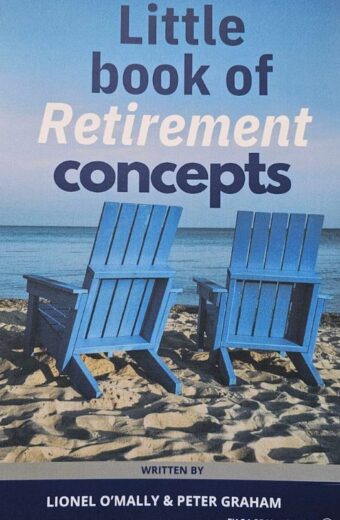Dr Vincent Fortanas discusses his life-long research
“The greatest fear for baby boomers is not death, but Alzheimer’s disease”
A very true and powerful statement to which you begin your book with. Is this the new taboo disease of the century?
Alzheimer’s disease (AD) is the new Black Plague of the 21st century, growing at an alarming rate; tenfold increase in those under 65 and a fivefold increase in those over 65 since 1950. By 85 years of age 50 per cent of those in the United States have AD. AD differs from the Black Plague of the middle ages because it destroys silently from within, rather than without, as the Plague did by bacteria.
It starts in ones brain 30 years before the first tale-tale signs “Slip of the tongue.” Unlike the Black Plague it can be ignored until it is too late, then those stricken, more than 70 per cent, are nearly stored away in nursing homes where they will stay on average of seven years away from the family, friends, and society.
What would you say to the baby boomer who believes ‘it won’t happen to me’?
Don’t be afraid. Often denial that it will not happen to me is because of paralysing fear that says “Don’t admit it.” This also is associated with the phrase, “Like death I can’t do anything about it”. Most don’t realise that AD is very preventable and it only takes minor changes in lifestyle to do it. Don’t be afraid, you can prevent it. You must, or pay the price.
The experience of watching one so close decline into Alzheimer’s is impossible to describe to one who hasn’t been through it… but if you had to, in just one paragraph, how would you?
First, there simply is no way to watch the mind of someone close to you, your wife, husband, mother or father become ravaged to the point that they do not recognise you, or worse, accuse you of horrible things, “You are not my wife. You are an imposter.”
Our families must have a meeting on how each one will contribute time, money, and love to the effort of caring for their loved one. Unfortunately, it is often one person that is left with the duty to do all. They burn out or worse get ill and it is then that they put the loved one with AD in a nursing home.
I have a new book coming out called The Anti-Alzheimer’s Prescription for Caregivers. It will answer all your questions.
What made the biggest impression on me was right at the beginning of your book you mention that ‘serendipitous early morning’ when you realised that your Alzheimer’s patients had three definite lifestyle characteristics in common; Poor quality sleep; Unpredictable stress; and Time deficiency.
This is scary in a world where we work long hours, get up early and often leave little time to ourselves. Do you think Alzheimer’s is a culture issue?
AD is clearly a disease of the affluent societies. The United States has only 3 per cent of the population, though 18 per cent of the cases. If you take into consideration Europe and Australia we have over 40 per cent of the cases with only 8 per cent of the population. Stress, sleeplessness, and constant pressure of time are the sentinel risk factors causing our aging hormones (cortisol) to rise and our youthful hormones (serotonin and dopamine) to decline. Without dopamine and serotonin we have no willpower, we overeat, drink, and become addicted to stress.
That is why I found among professionals, doctors, one of the most commonly diagnosed with AD. The American Medical Association notes 64 per cent of MDs are overweight or obese. They have one of the highest incidents of addiction and divorce. Why? They definitely know better. The reason is without controlling ones stress and sleeplessness you have no control over what you know is obvious. There is a reason why most healthcare books are put on a bookshelf and fail. It is because they do not pay attention to the sentinel risk factors.
“My father had not died. But he’d never again be the dad I had loved and cherished.”
This became the driving force for your research, and motivation which will change many lives. Readers may be intrigued, tell us a little about what the relationship with your father was like before the Alzheimer’s?
My father was my confidant, my mentor, my Little League coach. He was the outward security of our family. My mother, the inner security. My father was the captain of the ship. My mother was the ship. The morning my mother (Rose) called with my dad yelling in the background, “What did you do with my wife, Rose, you are an imposter,” was the day I decided I must help others not suffer what my mother was suffering, loss of her love to AD.
Do you believe greater public awareness and discourse regarding this disease could ease the pain of family members of sufferers? Do you believe that there are myths and misunderstandings surrounding this disease?
There are many myths but two that are most dangerous because they stop us from taking responsibility to prevent the disease. They are, “this is a magic pill” just around the corner. The American Academy of Neurology has said there is no cure in the near future. In the past three years the six major drugs and treatments that we thought would help those with AD have turned out to be a complete failure. In fact, those who were not on the treatment did worse than those who took placebo. We spent over 20 billion dollars.
The second myth, “There is nothing I can do”. That is, that it is genetic or if you live a long life you will get it. Both of these are simply not true and are myths.
Public awareness is growing, but often in the wrong direction. People want to hear myths, “A magic pill,” but they don’t want to hear the reality they “must change.”
Do you believe creating habits and daily rituals are the key to instigating an anti-Alzheimer’s way of life and sustaining it over the long-term?
Yes, yes and yes. The habit changes as are seen in the Anti-Alzheimer’s Prescription are simple and inexpensive. The key to the D.E.A.R. Program are: Diet, Exercise, Accentuating the brains reserve, Rest and Recovery.
It is no more difficult than brushing ones teeth or shaving daily, but in order to make a change and stick to it you must keep your youthful hormones up (dopamine and serotonin). This requires sleep hygiene and learning to manage ones time and stress.
Your number one diet tip?
At a restaurant never eat the bread first. You will eat 20 per cent more if you do and will be four times as likely to have a dessert. That is why they give you “free bread”. This turns on the aging hormones and ghrelin that makes you crave more carbohydrates.
Eat a protein or salad with oil and balsamic vinegar, sprinkle on turmeric or garlic. Then, when the entry comes, eat the protein or vegetable first. Then you can have the potato and bread last. You will eat less and lose weight.
Your number one relaxation technique?
Take a deep breath, slowly over four seconds and then breathe out slowly over eight seconds. After doing this twice, then begin to meditate or pray for 15 minutes. It will do wonders for you.
Your dream?
My dream is to keep my mother, 96, Alzheimer’s-free. Four years ago she could not remember three words after 3 minutes. Last month, four years later, she remembered all three. She has religiously followed the D.E.A.R. Program.
For more information on Dr. Fortanasce’s Anti-Alzheimer’s diet and lifestyle tips go to – www.dearprogram.com
Reprinted from The Retiree magazine

